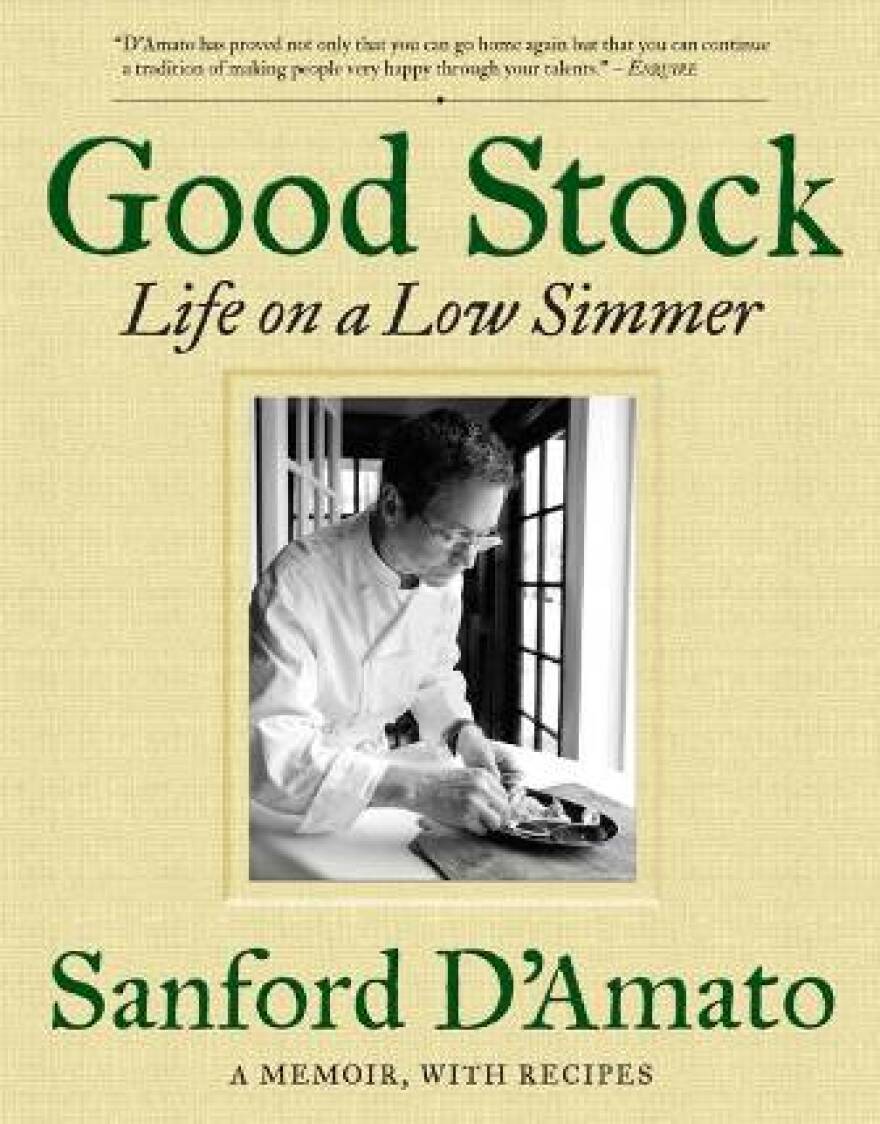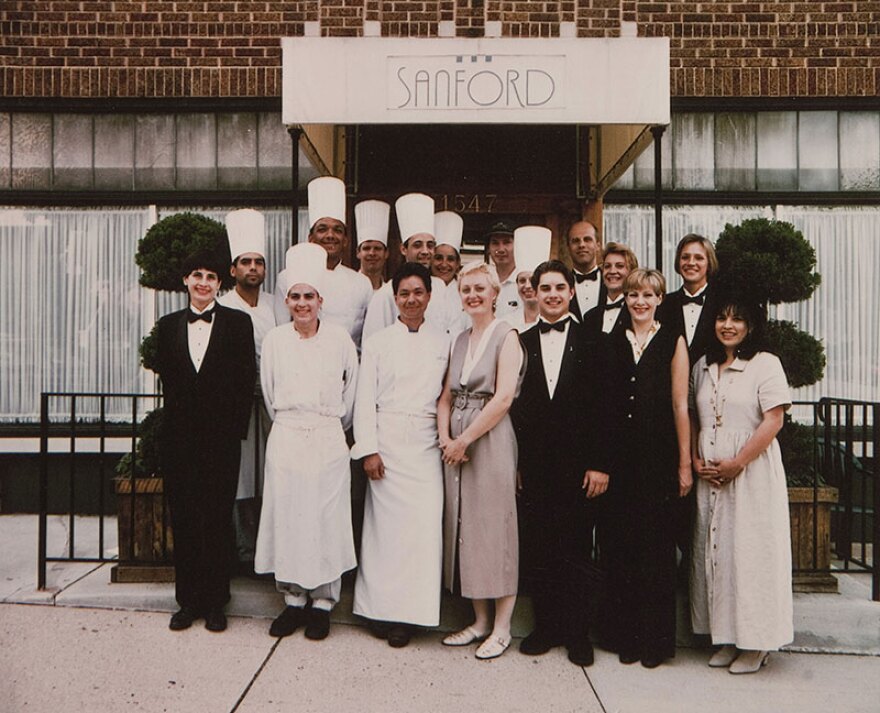One of the key people responsible for the rise of Milwaukee’s fine dining scene over the past three decades is Chef, and Milwaukee native, Sanford D’Amato.
The James Beard Award-winning chef founded and owned Sanford Restaurant for 23 years, was the first American chef to break into the French controlled kitchens of New York in the 1970's, and just released his memoir with recipes called Good Stock: Life on a Low Simmer.
D’Amato says food has always been a part of his life. Both his mother and his grandfather were great cooks, though the latter wasn't always the nicest guy in the world.
"But when he was working with food, there was just this dreamy smile that you just never saw that would come over his face," D'Amato says. "It seemed like the only time he was ever really really happy. He had always said he always wanted to be a chef."
So D'Amato decided to fulfill his grandfather's - and his own - dream. In the late '60s, there weren't many places to study cooking, but D'Amato found a program through a vocational service in downtown Milwaukee. While the lead chef offered guidance, the rest of the course left something to be desired.
"He said, 'You’re really interested in cooking, aren’t you?' and I said, 'Yes, isn’t everyone here? I mean that’s why we’re here – to learn to be chefs.' And he said, 'Oh, you don’t know, do you? You’re the only one here that doesn’t have to be here. Everyone else is on work release from prison,'" D'Amato says.

The teacher suggested D'Amato attend the Culinary Institute. His training there as well as his tutelage under French chefs and a Dutch chef and mentor named Peter von Erp helped D'Amato learn to craft his signature style and develop his palette.
"If you give one dish to five different chefs, you're going to get five different dishes, and if you know those chefs, if you know their food, you're going to know whose dish is whose just by the taste of that dish," he says. "That dish becomes a template of their journey, of where they've been and sometimes where they're going."
Chefs should also incorporate "taste memories" into their dishes to create more distinctive food, D'Amato says. Recipes alone, he says, will not create a signature dish.
"Recipes are really soulless frames," he says. "Without knowing where the food came from, that's really what the book is about, because without the stories, there is no food, there are no stories."
But D'Amato says as important as it is for a chef to put his stamp on his food, he should never forget his customer.
"It's very easy to get isolated in the kitchen, and to not realize there's someone eating your food," he says. "This isn't an ego trip, this is about making people happy."
At Sanford, D'Amato recalls having the staff and cooks sit to eat the dishes they were serving, so they could appreciate the customer's perspective.
"That person doesn't care that you just put out 55 dishes, it's that person being there for the first time," he says. "I like to use a baseball analogy. Ted Williams, one of the greatest hitters of all time, batted .405. If I batted .405 cooking, I'd be out of a job. A nine for ten, .900 doesn't make it. Every dish has to be perfect when it goes out for a customer, because a customer doesn't care that nine other people got a great dish and they got a lousy one."
Looking back over his career, D'Amato says he's seen a lot of changes in the restaurant scene. When he moved back to Milwaukee from New York in the 1980s, he was taking a risk leaving the epicenter of dining in order to achieve balance in his life. He also knew he'd never be able to own his own restaurant in such a competitive, and expensive, scene.
But he says since that time, the dining elite on the coasts have realized that there is great food throughout the rest of the country.
"It made it possible for chefs to move back to wherever they were from and to be able to do that and to do be able to do the food they wanted to do and be able to survive, and that's what's happening in the city right now," he says.
D’Amato will talk about his book and sign copies Tuesday, Wednesday and Thursday at Coquette Café in the 3rd Ward.






